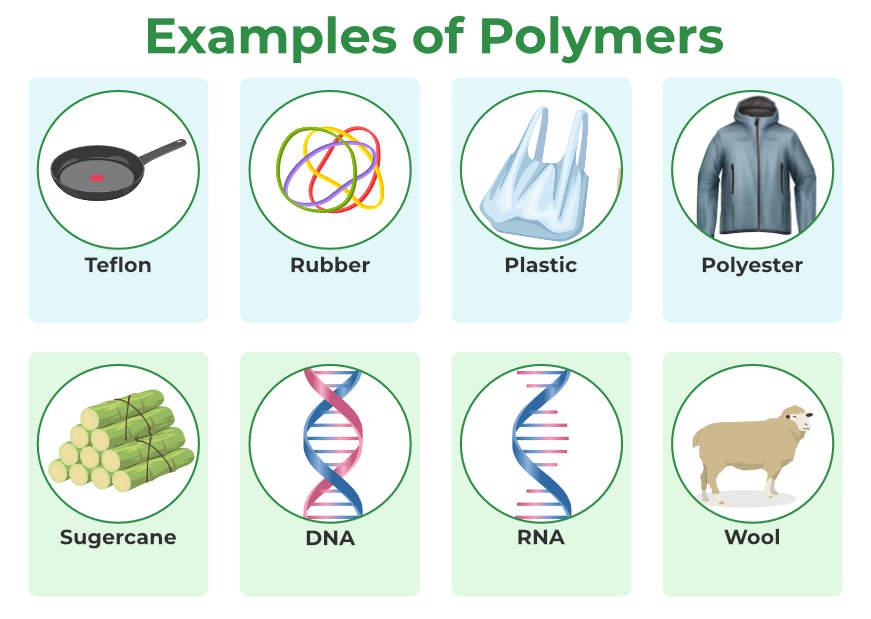High-Performance Polymers: Advanced Products for Sector
Discovering the Varied Applications and Advantages of Polymers in Different Industries
Polymers, with their varied range of residential or commercial properties and capabilities, have come to be indispensable in different sectors, each gaining special benefits from their application. From improving safety and security and efficiency in the automobile industry to transforming clinical gadgets in the medical care industry, polymers play a crucial function.
Automotive Industry Applications
Polymers play a critical role in enhancing the performance and sturdiness of numerous parts within the automotive market. These versatile materials are thoroughly used in the production of various components, varying from indoor components to under-the-hood applications. One popular use of polymers in the vehicle industry remains in the manufacturing of light-weight elements. By replacing standard metal get rid of polymer-based alternatives, vehicles can attain improved fuel performance without compromising on toughness or safety.

Health Care Industry Benefits
In numerous healthcare applications, the benefits of making use of polymers are commonly identified for their diverse series of useful residential or commercial properties. Polymers play an important duty in the medical care industry as a result of their flexibility, biocompatibility, and cost-effectiveness. Among the main advantages of polymers in healthcare is their capacity to be customized to certain needs, such as adaptability, longevity, and biodegradability, making them perfect for a large range of medical applications.
Polymer-based materials are thoroughly made use of in clinical gadgets, such as catheters, implants, prosthetics, and drug delivery systems, as a result of their biocompatibility and capacity to simulate natural tissues. These materials can minimize the danger of allergic responses or beings rejected, enhancing client safety and security and end results. Additionally, polymers are lightweight, making them ideal for wearable medical devices and guaranteeing client comfort.
Additionally, polymers enable the advancement of cutting-edge therapy methods, such as hydrogels for tissue engineering and nanocomposites for targeted drug distribution. Their convenience of handling and sanitation makes them vital for preserving high criteria of hygiene in medical care setups. On the whole, the varied advantages of polymers contribute substantially to advancements in medical modern technology and individual treatment.
Ecological Advantages of Polymers

Furthermore, polymers can add to energy savings because of their light-weight nature. In markets such as transportation, lightweight polymer products can help in reducing fuel consumption and greenhouse gas emissions. Additionally, Go Here polymers can enable the development of energy-efficient products such as insulation products that boost energy conservation in structures.
In addition, polymers play a critical role in minimizing water contamination. The use of polymer-based filtration systems can successfully remove contaminants and contaminants from wastewater, safeguarding water resources and ecological communities. In general, the environmental advantages of polymers make them important assets in advertising sustainability and eco-friendly techniques throughout numerous sectors.
Polymers in Electronics and Technology
Thinking about the increasing need for cutting-edge and sustainable solutions in contemporary industries, the assimilation of sophisticated polymer technologies in the world of electronic devices and technology has actually arised as a pivotal technique for driving effectiveness More about the author and performance. Polymers have actually changed the electronics industry by making it possible for the manufacturing of lighter, much more flexible, and sturdy digital tools. From mobile phones to clinical gadgets, polymers play a crucial duty in improving product layout and functionality.
One significant benefit of polymers in electronics is their insulating homes, which aid secure delicate electronic elements from environmental elements and electrical interference. Additionally, polymers are important in the growth of flexible display screens, wearable technology, and published electronic devices, offering unlimited opportunities for creating clever and interconnected tools.
Additionally, the use of polymers in electronic packaging has actually resulted in developments in miniaturization and thermal administration, boosting the total efficiency and reliability of electronic systems. As innovation remains to progress, the versatility and adaptability of polymers will definitely drive even more technology in the electronics sector, shaping the future of technology.
Function of Polymers in Building and Facilities
The assimilation of sophisticated polymer materials in building and construction and infrastructure projects has actually reinvented the means frameworks are designed and constructed in modern times. Polymers provide many benefits in the building industry as a result of their adaptability, toughness, and cost-effectiveness. One essential function of polymers in building and construction is their use in finishes and sealants, giving protection versus ecological variables such as wetness, UV radiation, and deterioration. Additionally, polymers are utilized in the production of light-weight and high-strength composite materials, enhancing the structural integrity of structures while reducing general weight.
In addition, polymers play a critical function in lasting building and construction practices by making it possible for the growth of energy-efficient structures. Shielding materials made from polymers assist regulate indoor temperature levels, lowering the requirement for home heating and cooling systems and eventually reducing energy intake. Furthermore, using polymer-based compounds in framework projects such as get more bridges and roads boosts their longevity and minimizes maintenance prices. On the whole, the unification of polymers in construction and facilities showcases their significant effect on modern design methods.
Conclusion
In verdict, polymers play a vital function in various markets such as automotive, medical care, ecological, electronics, and construction. From boosting gas efficiency in automobiles to boosting clinical gadgets, polymers use many benefits.